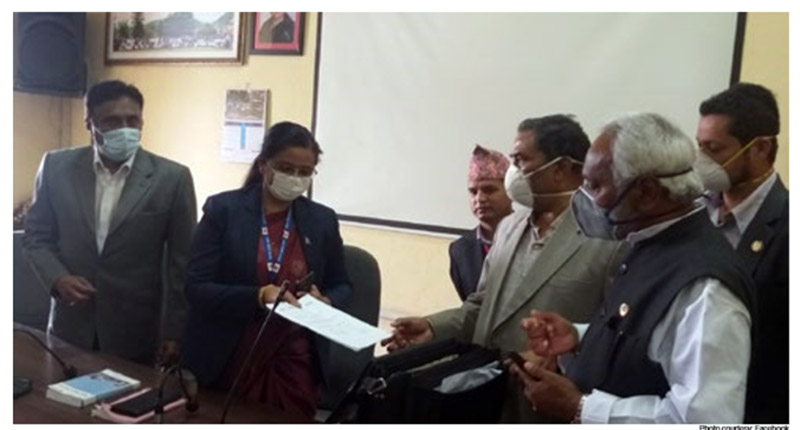JSP-N leaders discuss party leadership
Kathmandu, June 6
Janata Samajwadi Party-Nepal leaders held a meeting to finalise a unity deal today, but they failed to iron out differences on the leadership modality and structures of the unified party bodies. They are likely to meet again to finalise the unity deal.
JSP-N was created on April 22 when the Rastriya Janata Party-Nepal and Samajwadi Party-Nepal decided to merge their outfits.
JSP-N leader Ashok Kumar Rai, who represents the former SP-N told THT that leaders formerly associated with the RJP-N proposed a two co-chairpersons model, but leaders formerly associated with the SP-N told them this model was not effective and it would be better to avoid it.
“We have seen this model hindering the Nepal Communist Party’s political affairs due to differences between the two co-chairs,” Rai said. He said the meeting also discussed the strength of party bodies, and powers of office bearers.
SJP-N leader Upendra Yadav said they were discussing whether the unified party could have one coordinator and one chairperson. He, however, said the form of governance — presidential or parliamentary — the unified party should champion would be decided by the general convention of the unified party. The former SP-N championed a directly elected president, while the former RJP-N championed parliamentary democracy.
The Election Commission had given Janata Samajwadi Party-Nepal 45 days to submit documents required for registering a political party, including photocopies of office bearers’ citizenship certificates.
EC Spokesperson Raj Kumar Shrestha said the JSP-N had until Monday to submit documents.
If party leaders failed to submit necessary documents, they could reapply for registration of a new party citing new unity agreements. He also said the Supreme Court had ruled that the lockdown period would be deemed zero period for legal proceedings and that precedent could apply to the EC also.
The SP-N and RJP-N had sealed a unity deal on April 22.
They had submitted an application at the EC the next day seeking to register the new party — Janata Samajwadi Party-Nepal.
The two parties had decided to merge their outfits to avoid split within their parties. The government had amended the Political Party Act by bringing an ordinance whereby party leaders having 40 per cent support either in the central committee or parliamentary party could split their mother parties. There was a rumour that some dissident leaders had been preparing to register a new political party.
The government later rescinded the ordinance after leaders from the ruling NCP and opposition parties flayed the move saying the government had brought the ordinance to engineer splits in the parties.
The JSP-N has pledged to champion the cause of identity and empowerment of marginalised groups and communities.
It has also said it will try to form an alternative political force by rallying support of marginalised communities and groups in the country.
A version of this article appears in e-paper on June 7, 2020, of The Himalayan Times.






